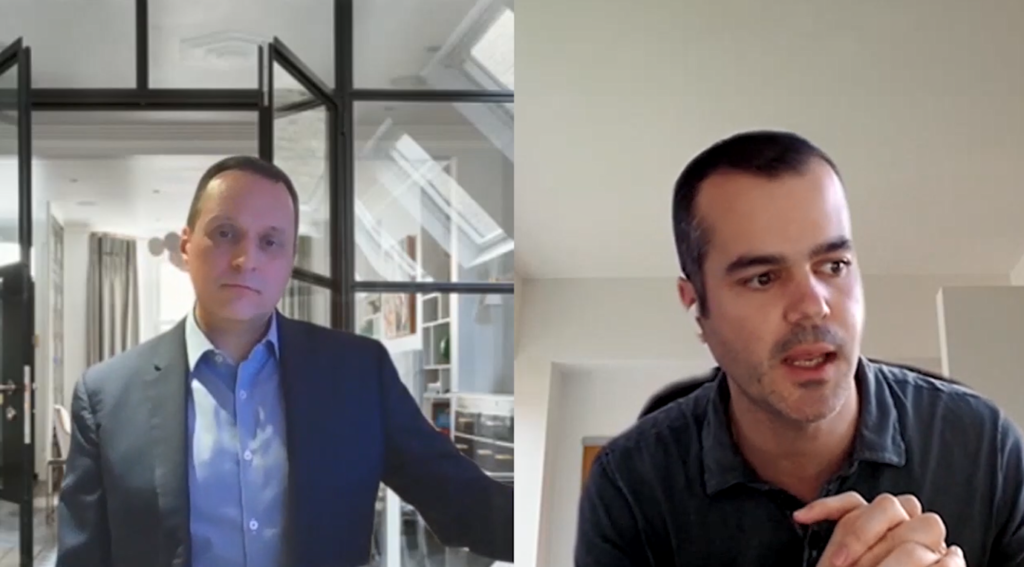Staying Ahead: Global Intellectual Property Strategy in an Evolving World
The global coronavirus pandemic has disrupted industry on an enormous scale and the intellectual property world is not exempt from these changes. For the life sciences industry, in particular, patent protection is essential for their businesses and the viability of products and marketability abroad. Therefore, global companies have chosen to allocate less budget to the foreign filing of applications and instead, reorganize their patent assets.
Park IP, a Welocalize company, recently presented at the Global IP Confex featuring Kris Jeffrey, Director, Customer Success, Welocalize, and Matthew Sekac, VP, Data & Business Intelligence, Welocalize. Together they talk through the changing intellectual property landscape during (and after) the pandemic and take a deep dive into how technology can be leveraged to streamline and support global patent filing.
Click here to view the on-demand event session

Changes to Customer Interactions and their IP needs
Last year, communities and economies across the world faced unprecedented disruption due to the coronavirus pandemic. Matt shared, “I think the main focus of this past year has accelerated trends that we were already observing. For instance, how our clients work and engage with us and their expectations of us as a service provider.”
One key trend the IP industry is experiencing is the pace of the technological revolution. The legal industry is conductive to Artificial Intelligence (AI) and machine learning applications. Several IP organizations are experiencing an increase of AI in supporting patent and trademark searches, and this trend is predicted to continue in 2021.
Matt added, “how do we leverage other kinds of tools that can help us break down and start to analyze the composition of our client’s patent applications? In the context of the pandemic, where you have a lot of customers and businesses that are experiencing more trying conditions, you start to zero in on every opportunity for that and it becomes more and more important to accelerate our progress in that respect.”
Discover further insights surrounding digital translation and the legal industry here.
The Future of IP
Matt explored how, “different organizations are going to experience the future of IP differently and the way that they think about their future as IP holders is going to depend on their market positioning as an organization and their existing IP portfolio.”
Adding that “the regulatory environment, for a lot of organizations will influence the future of IP through their lens. Our experience over the past 12 months would corroborate that macroeconomic conditions in a particular country are actually really important drivers of filing activity.”
In 2019, patent filings worldwide fell for the first time since the 2009 financial crisis, declining by 3%. In contrast, trademark and industrial design filing activity grew by 5.9% and 1.3%, which was driven by a drop in filings by Chinese residents. However, excluding China, global patent filings rose 2.3%. Posing the question whether regulatory conditions evolve in a significant way in any particular country.
Matt shares that “We would hear from customers that China was not a particularly attractive jurisdiction for foreign filing. China has continued to grow as a market and has continued to be an important target market for many customers. Therefore, we’re going to file more patents in China because we believe those patents have value.”
Machine Translation in the World of IP Translation
Machine translation technology is continually improving and performing better, especially in the IP space. However, there remains a great deal of valid concern behind using machine translation, due to the potentiality of small mistakes being the difference between a $100 million patent being enforceable or not. We need to consider how we can incorporate what we know and what advance we’re able to make in machine translation to make our human translation processes better.
Matt discusses that “there’s a great deal of potential in this technology and, there are many opportunities for this technology to add value. Both from an efficiency and then also a qualitative standpoint. The direction of our industry and how we’re thinking about applying it to patents is how we’re thinking about leveraging the expertise that we have in our organization.”
Adding that, “It’s not that we think human translators are going to go away, but it’s about how we are using technology to make this better. The same way translation memory technology made human translators more efficient. It’s about how we can use everything that we know and all the expertise that we have to augment and facilitate the human translation processes we’re employing to deliver better outcomes.”
WATCH THE SESSION NOW
Learn More
You might also like Park IP’s event session at CLOC After-Hours Leveraging AI to Overcome Multilingual Barriers in Legal Operations featuring Alex Yanishevsky Senior Manager, AI, MT, and NLP Deployments, Welocalize, and Jen Farnham Business Development Director, Park IP, a Welocalize company.
Connect with us to find out more about our language service solutions to assist with your intellectual property needs.




